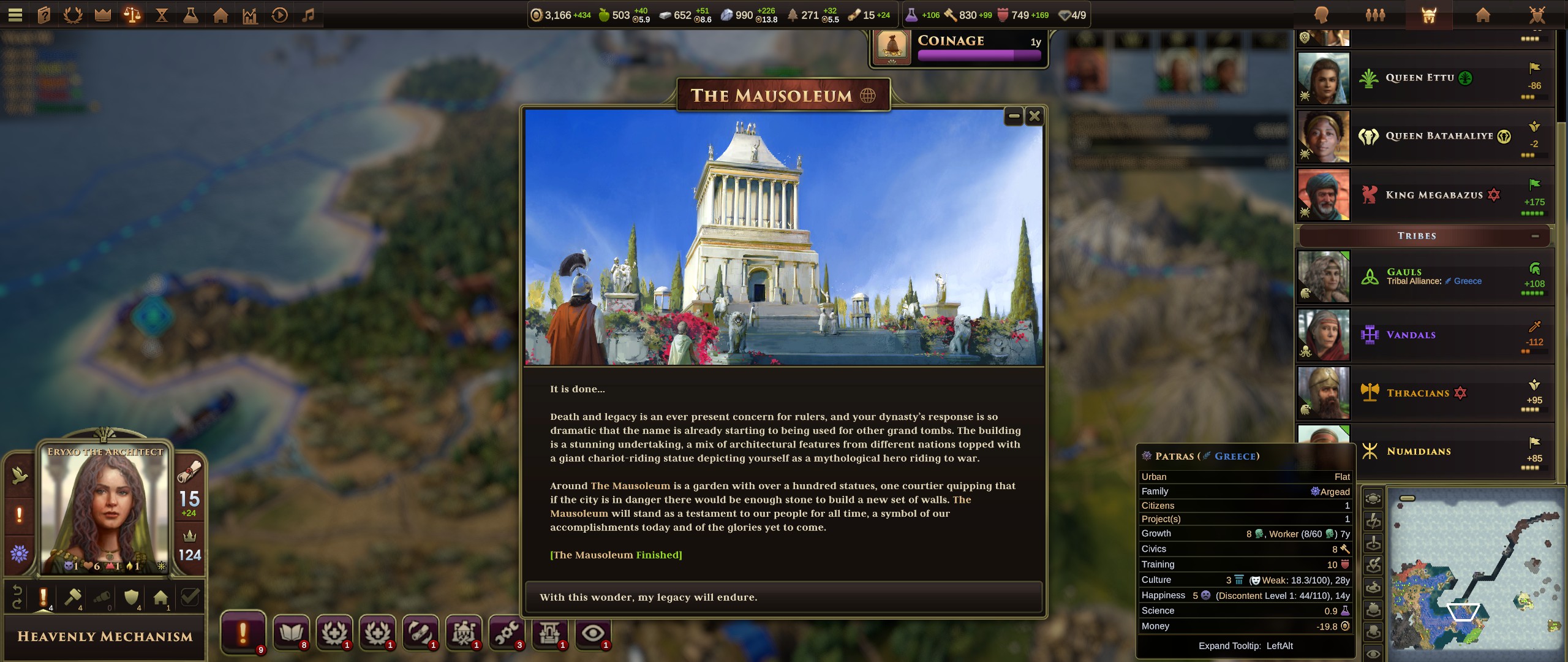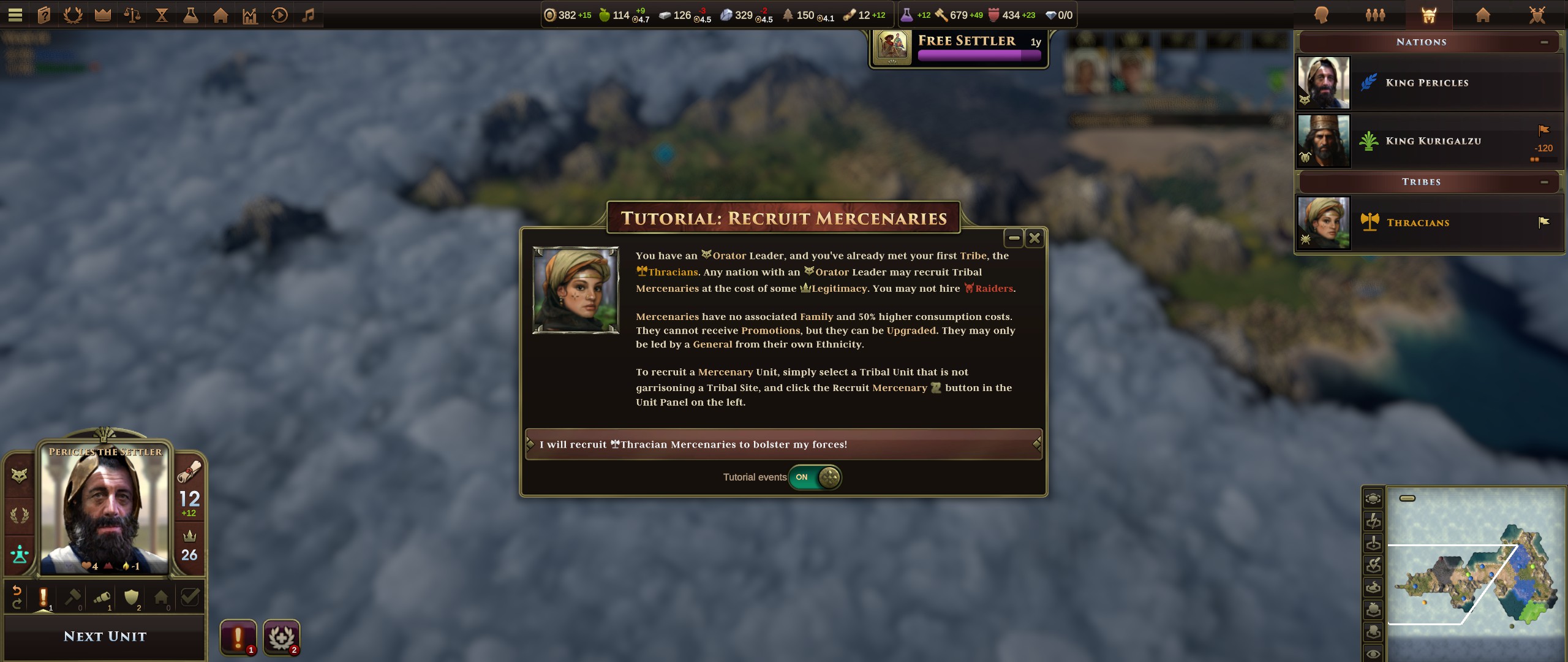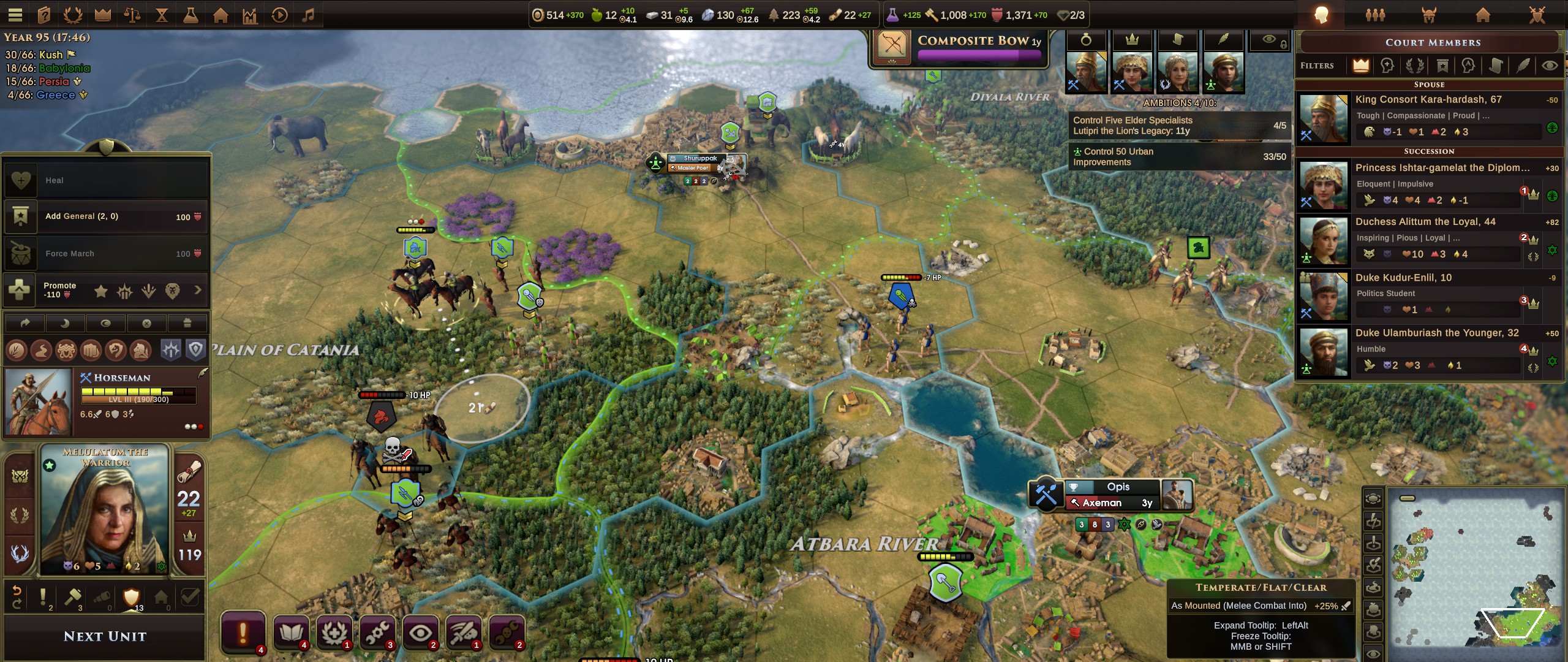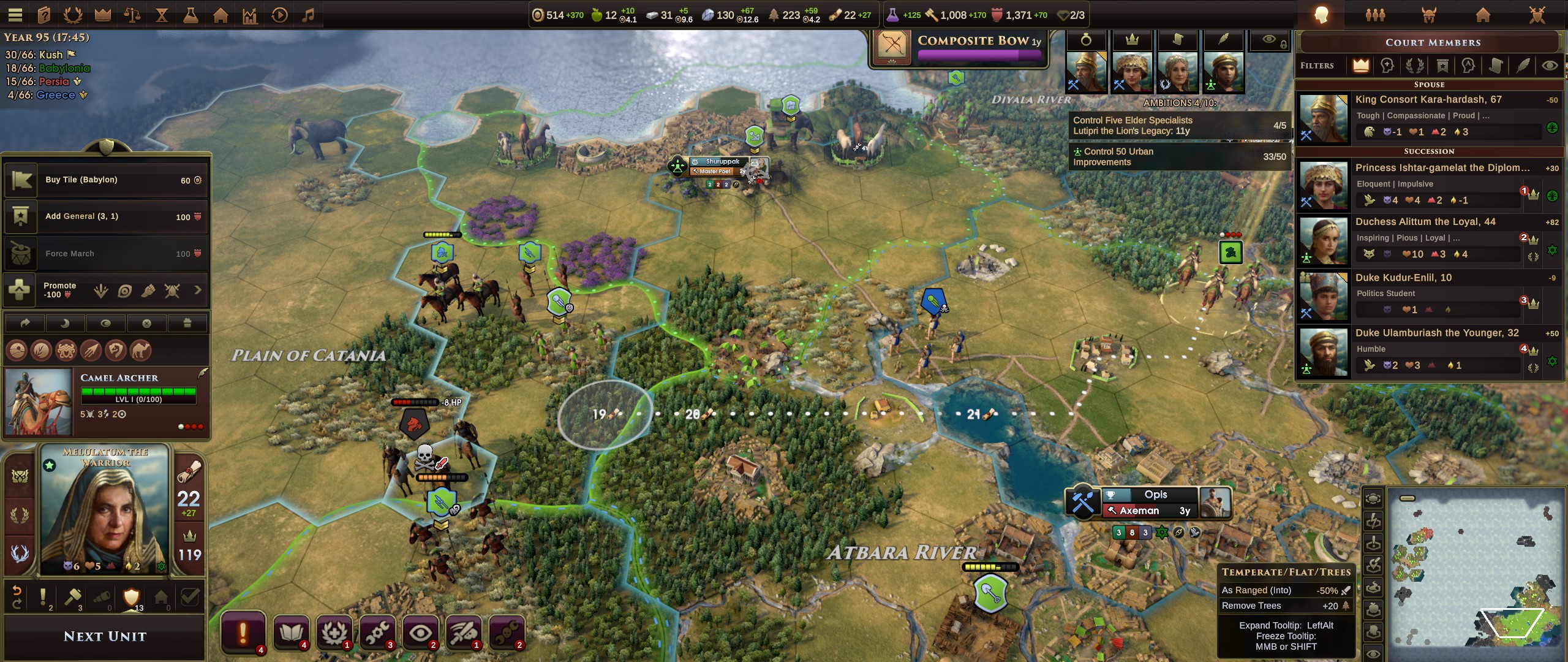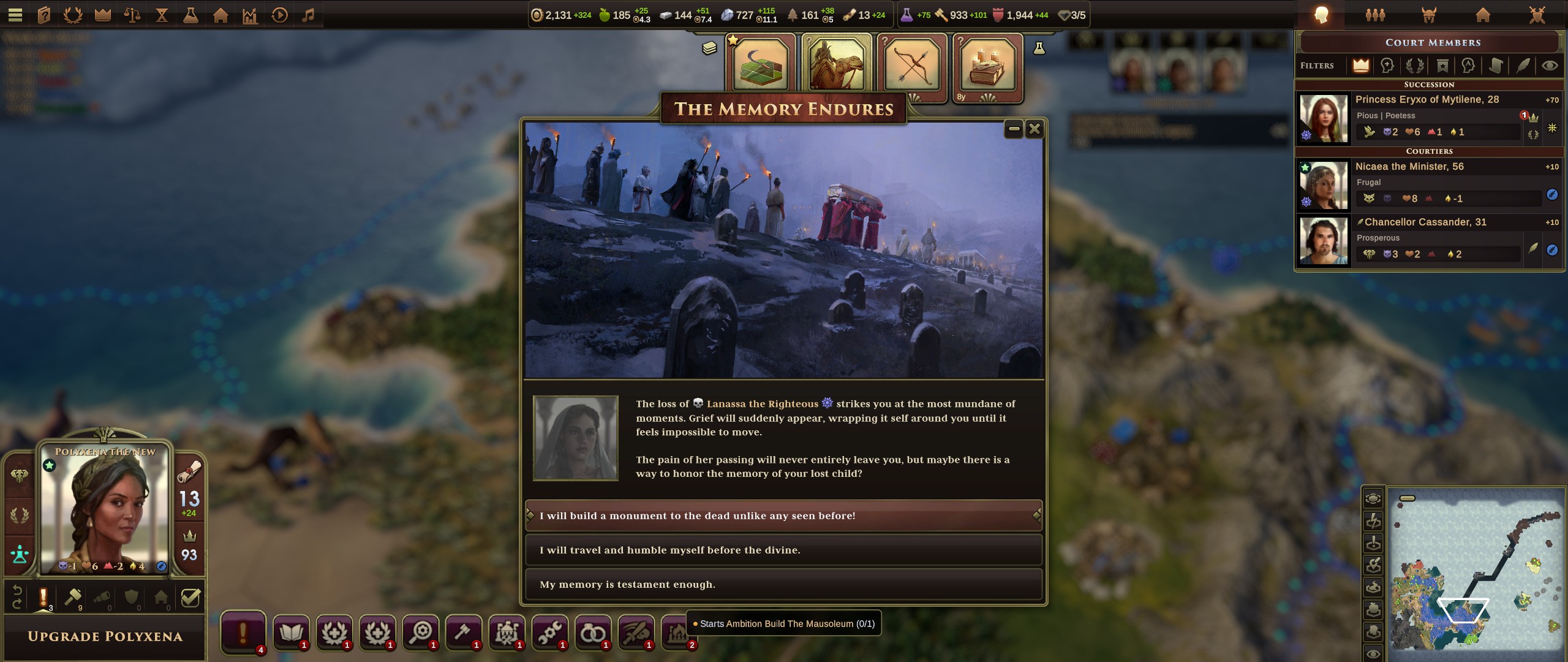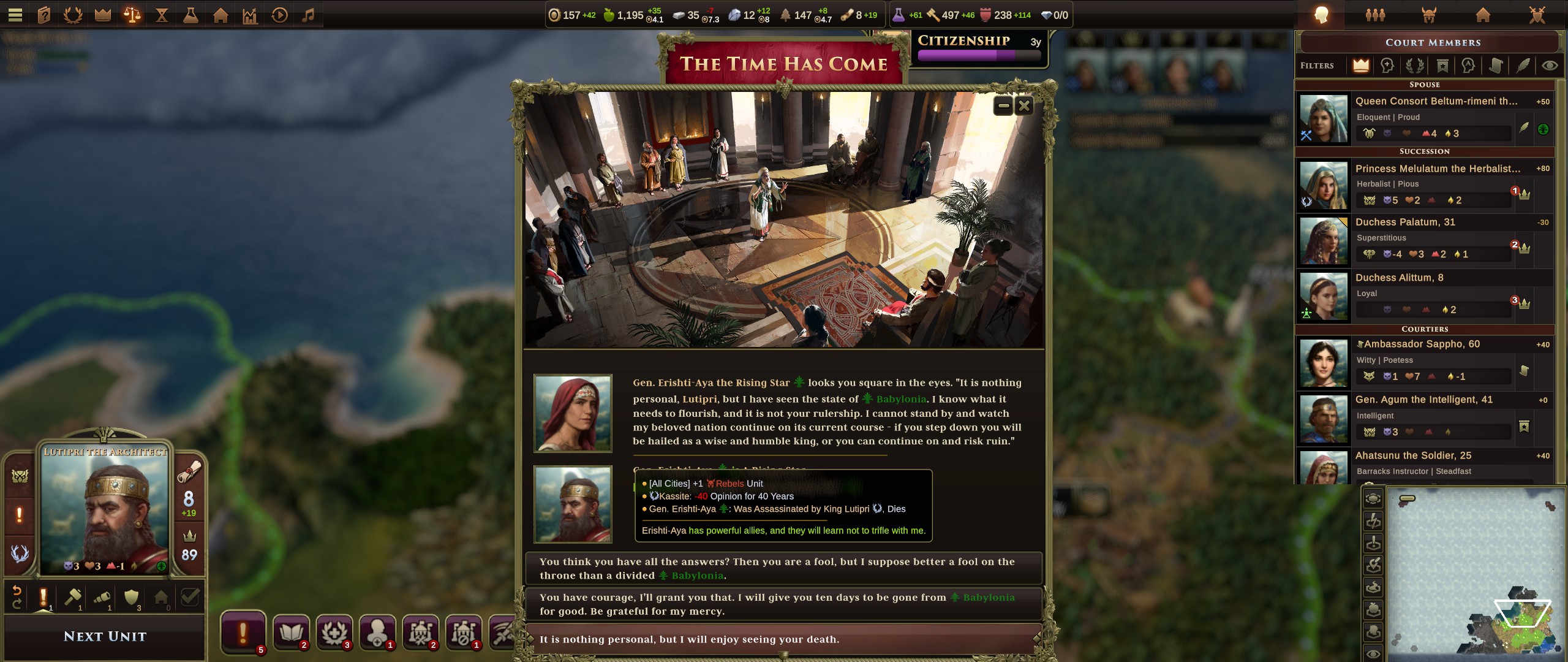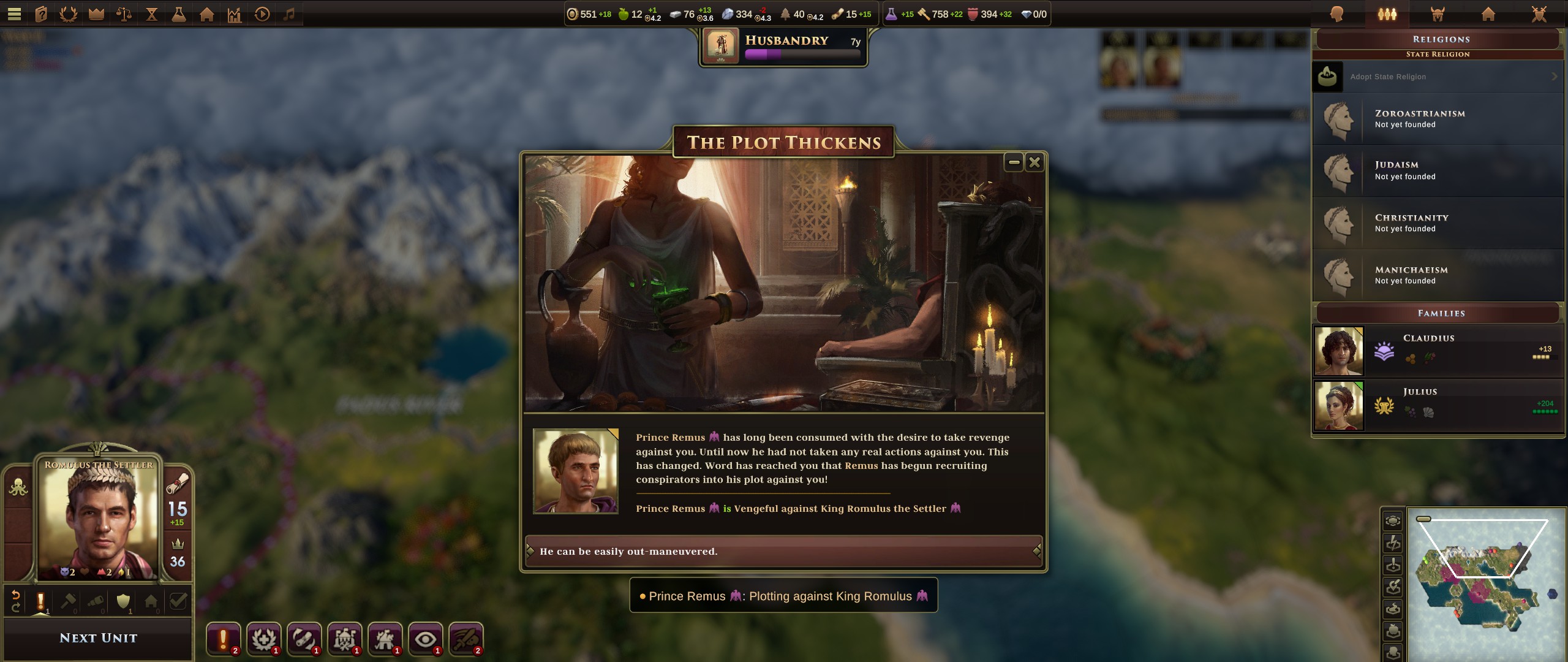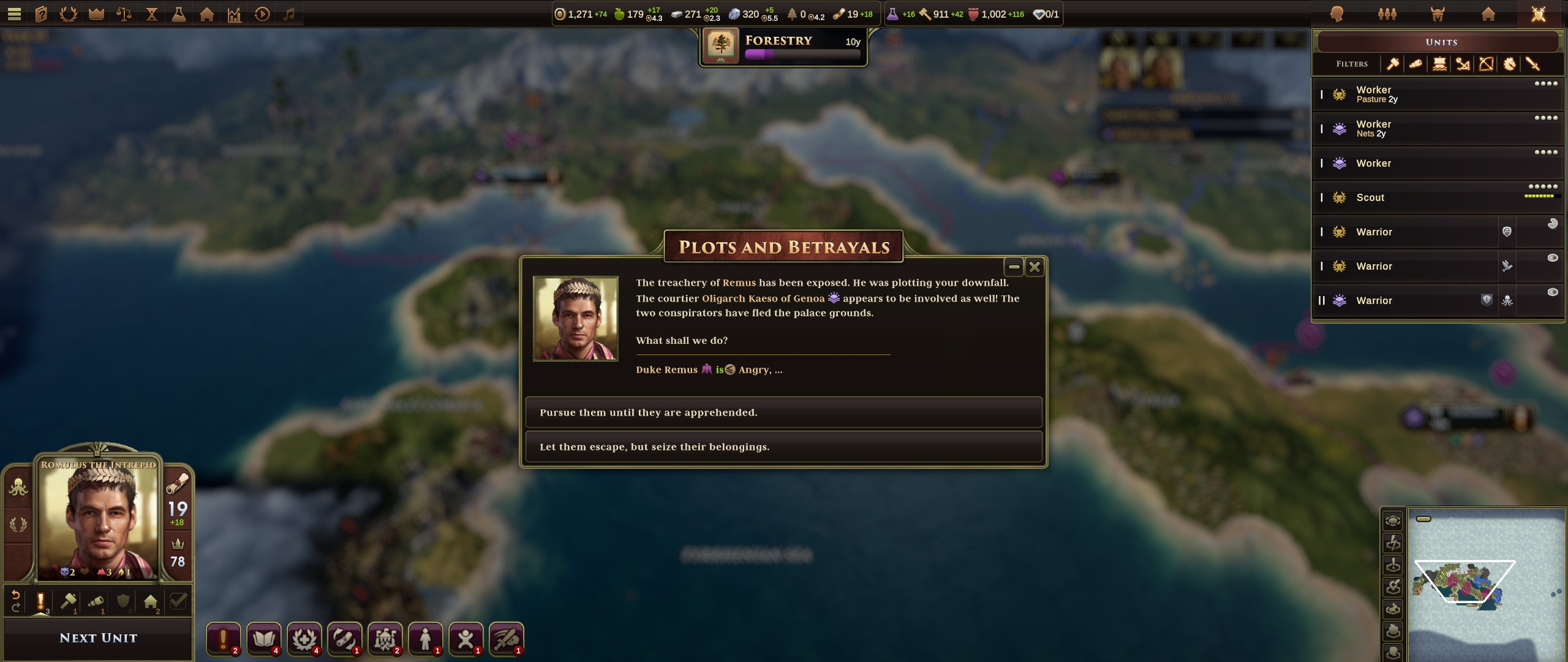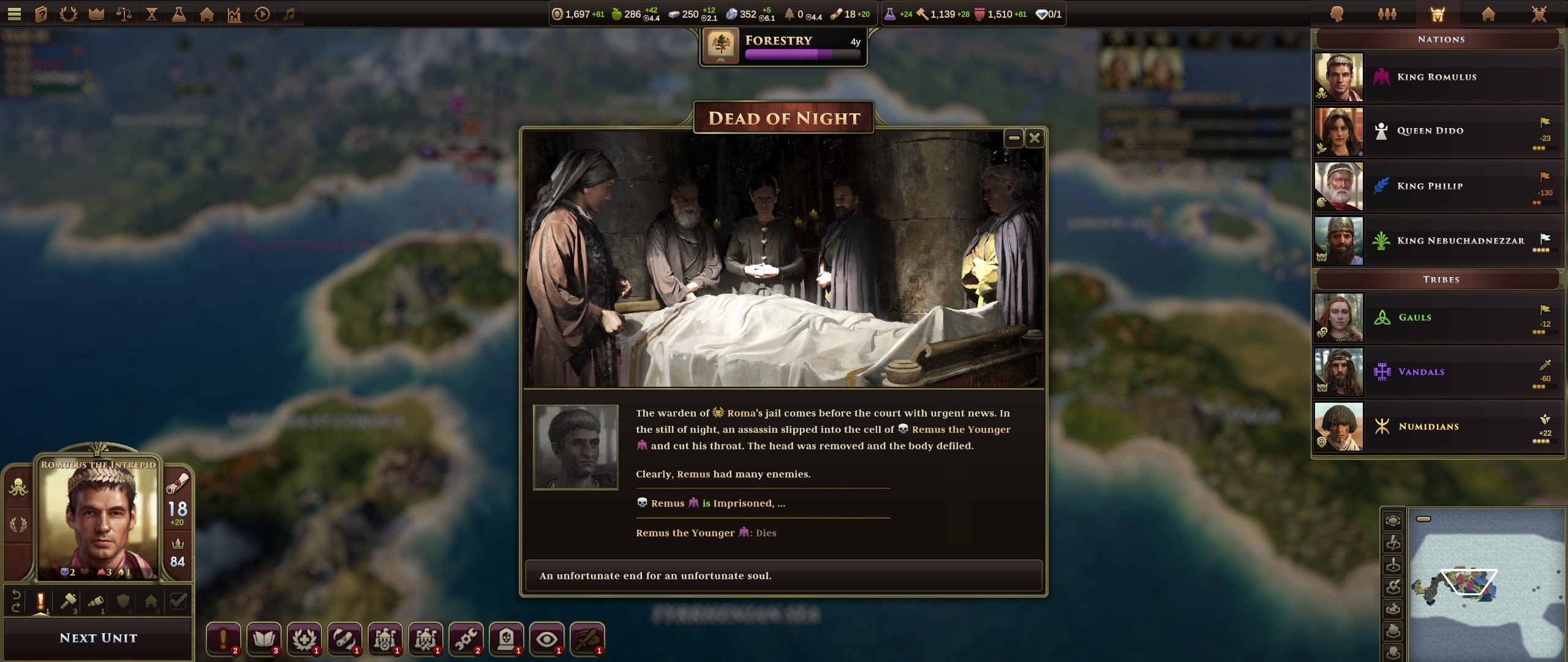Humankind launched three years ago, in August 2021. Since then, I’ve played it many times (on both Game Pass and Steam), and with Civ VII now on the horizon, the time is right for me to revisit my thoughts. I still like Humankind — but I don’t think it ever reached its potential.
What I liked about Humankind…
At launch, I was glowing about Humankind. It was a very good “traditional” and warfare-focused 4X, focused on building an empire, investing in food, production & science, raising armies, and fighting other empires. It featured:
- Engaging warfare and tactical combat — terrain, technology, unit types, and tactics all mattered. Armies marched as stacks, before deploying to fight. Battles took part over several turns (allowing reinforcing stacks to join the fray), and siege battles felt distinct thanks to the presence of city militia and mechanics such as fortifications and siege engines. Warfare evolved through the eras, especially once gunpowder made its debut.
- Computer players that could give me a challenge — from my very first game, I had to fight for my life against early rushes.
- Points-based victory conditions that rewarded doing well across multiple dimensions:
- Being both tall (building plenty of districts) and wide (geographic size).
- Succeeding both at peace (having a large population, being scientifically advanced, earning lots of gold and influence) and at war (destroying lots of enemies).
- Doing well consistently through the game — it was often worth lingering in earlier eras to earn points.
- Novel mechanics such as choosing new cultures over the course of a game, opening with a hunter-gatherer phase in the Neolithic period, building cities region by region, and attaching outposts to expand cities.
- A great aesthetic, both in terms of art and music.
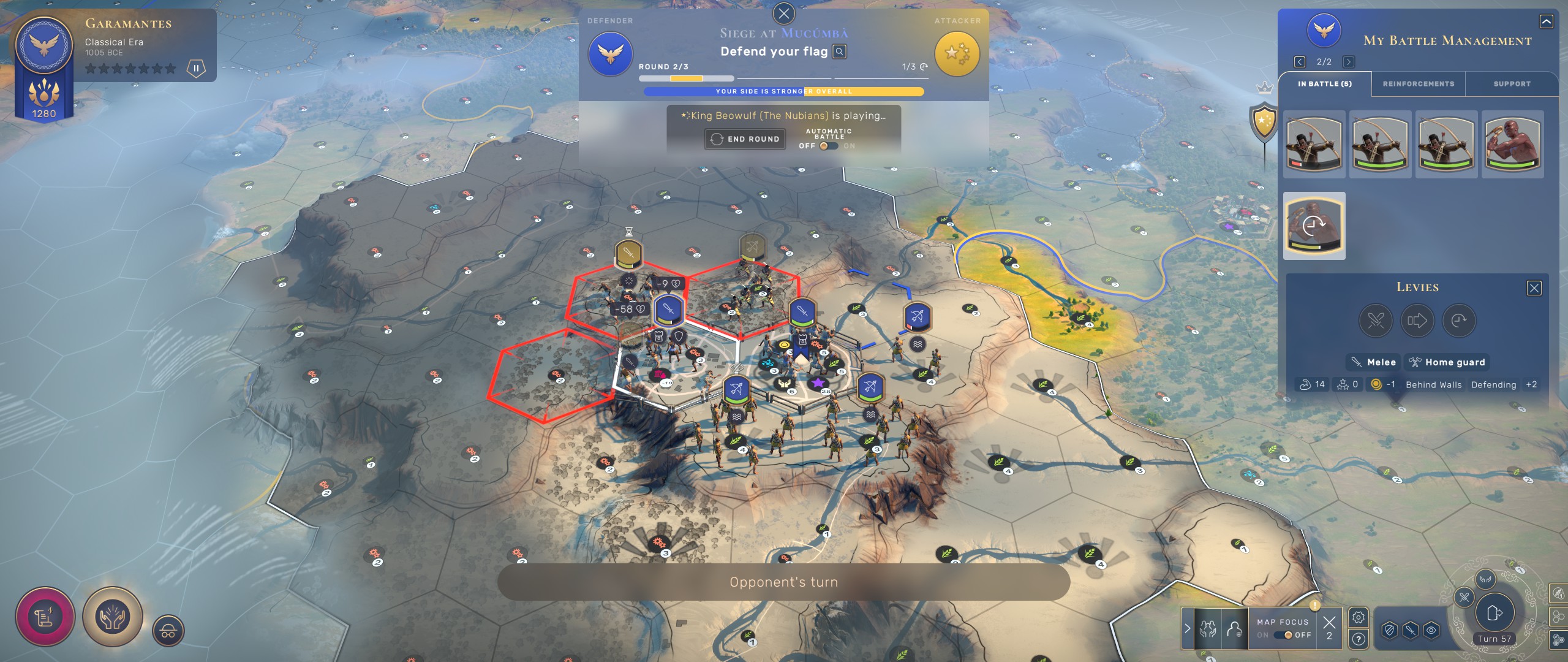
… and what I didn’t
At the same time, Humankind had its flaws:
- From a design perspective, anything that wasn’t part of that “traditional” 4X core was vestigial — notably religion & culture. Diplomacy was bland and different computer opponents never felt distinct.
- From an execution perspective, the late game was noticeably less polished than the early game1. Cool ideas suffered in implementation, such as a pollution system that was too punitive in practice.
The problem is that the game never really evolved from there. In an ideal world, expansions would have plugged the holes in its design; but none of its DLC2 did. As for execution, I think it says a lot that later updates simply disabled pollution by default.
By now, I think it’s unlikely this situation will change. The last DLC, a culture pack, came out nearly 12 months ago (back in September 2023), and the cadence of patches has slowed — there have been none since January 2024, although the developers have said they’re working on an update.
Why Old World was, overall, better
Another comparison is Old World, the other major historical 4X besides Civ. Between the two, Old World is the better game:
- Both are innovative, but Old World redefines the 4X genre (with its narratives, characters, order system, ambitions, and more) while Humankind iterates on the traditional 4X. It’s telling that Civ VII seems to borrow more from Humankind, as Humankind’s ideas are probably more conducive to being bolted onto established designs.
- Old World is better tuned, more polished, and does much better at integrating different game systems. It’s also still receiving DLCs and regular updates.
At the same time, Humankind is the better-looking of the two, and its familiarity made it easier for me to learn at first.
Conclusions
Would I still recommend Humankind? Yes, with the caveat that prospective players should understand its focus — and its limitations. I still think it’s a good 4X game with great ideas (underscored by how many of them are recurring in Civ VII). It does particularly well at warfare — better than any Civ game probably has in decades — and that makes it well-suited for those seeking military challenges in their 4X games. On sale, it’s cheap enough (90% off!) to justify taking a look. What it does not do well is anything outside that core focus.
Would I replay it? Maybe. I thought I was ready to move on, but writing this article reminded me of what I enjoyed. I’ve yet to try the mod scene, and even without mods, sometimes I just feel like 4X comfort food: something that Humankind offers.
Enjoying this site? Subscribe to updates here:
- I don’t think it’s a coincidence that the late game never went through the rounds of open beta testing that the early game did. ↩
- Humankind received several rounds of DLC that added new playable cultures, plus one expansion, “Together We Rule”, all the way back in November 2022. “Together We Rule” added new diplomacy and world congress mechanics, which I never really understood or enjoyed. ↩
